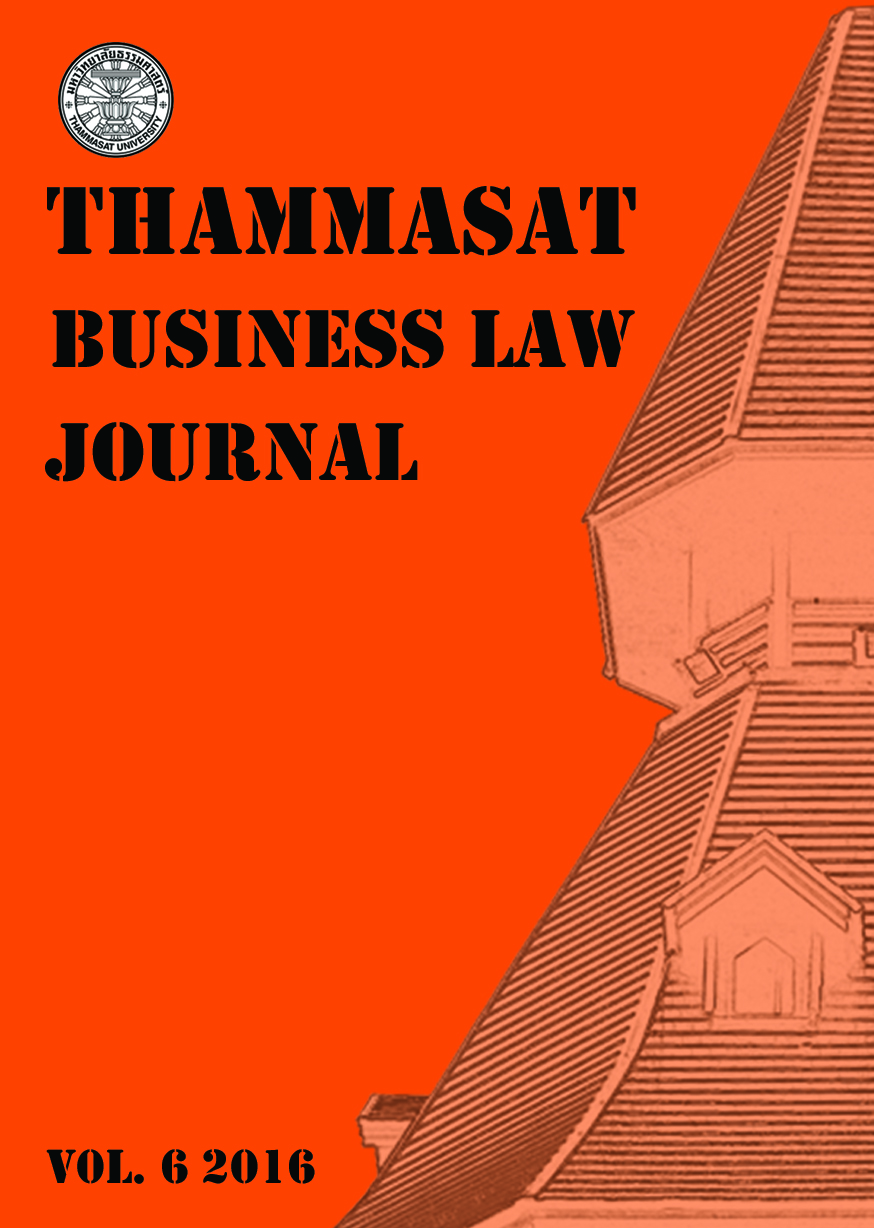THE RIGHT OF THE EMPLOYER OVER ELECTRONIC INFORMATION CREATED IN THE COURSE OF EMPLOYMENT
Main Article Content
Abstract
In recent decades, most workplaces have been using computers to do business and the computers have become an important business tool to operate business. However, the employer, who employed the employee to create the work in electronic information, still has insufficient laws to protect his right over such electronic information under Thai laws. Despite, the employer invests in the economy but he cannot protect the electronic information created during the employment.
An electronic information created by employee in the course of employment during the employment period is admittedly belonging to the employer as same as the corporeal work. Nevertheless, some electronic information can be the copyright work, which the copyright law in the United States of America provide the right over the copyright work, which made for hire, to the employer. As well as, the United Kingdom and German also specify some copyright works belong to the employer. However, the copyright law of Thailand provides the protection of copyright work in the course of employment to the author, not the employer.
Furthermore, the electronic information is not the things under the definition of the Criminal Code, thus it’s not object of theft offence. The Computer-Related Crime Act B.E.2550 may not protect the electronic information of employer if employee has an authorization to access the computer. Moreover, the protection by trade secret law is not applicable to protect the electronic information in the digital age as it is easy to access and distribute.
This thesis will study and analyze the existing applicable laws in Thailand need to amend in order to protect right of the employer over electronic information created under the employment based on the concept of German copyright law to balance the right of employee as the author of works and seek a criminal measure to protect the right of employer over electronic information from the bad faith action of employee
Article Details
References
Micheael Wendler, “Key Aspects of German Business Law”, Springer – Verlag Berlin Heidelberg, 2008.
Stim, Richard. (2001). Intellectual property : patents, trademarks, and copyrights. Albany, N.Y. : West, c2001.
Werner F. Ebke, Matthew W. Finkin, Introduction to German Law, Kluwer Law International, 1996.
Jerome H. Reichman: “Intellectual Property Rights in Data?”, Faculty Scholarship, Duke Law School, 50 Vand., L. Rev.51, 1997.
Khamjohn Juthathipayakul, “Secure Creditor: The Possibility to have Copyright Secured as Collateral”, Rapee Law Journal, Faculty of Law, Assumption University, (2006), p. 241.
Michael Rossi, “Is Compujter Data "Tangible Property" or Subject to "Physical Loss or Damage"? in Cyber and Privacy Risk and Insurance, August 2001.
“Analysis of International Work-for -Hire Laws”, 2004 Sutherland Asbill & Brennan LLP.
Sitta Kunapatarawong, “Trade secrets between employer and employee”, Master of Law Thesis of Thammasat University (2013).


